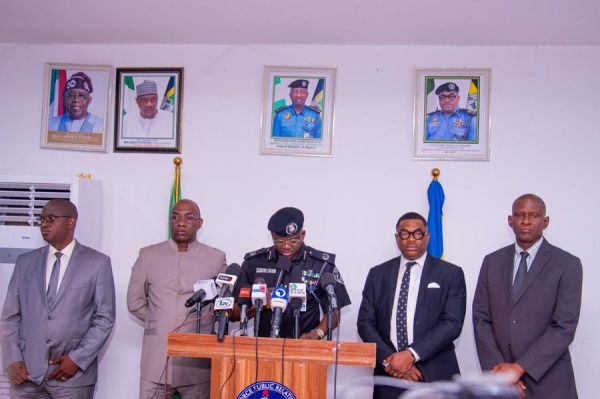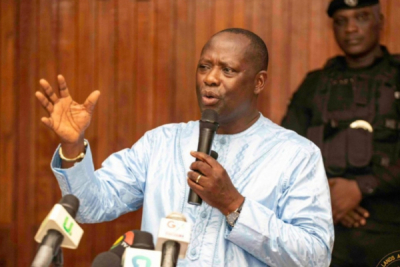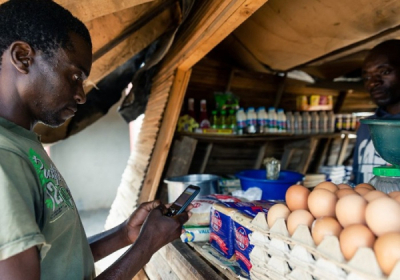Cybercrime has a broader ripple effect, increasing business costs and deterring foreign investment. Strengthening technical and organizational capacity will be crucial to maintaining investor confidence and accelerating economic diversification.
The Nigeria Police Force National Cybercrime Centre (NPF-NCCC) has achieved remarkable milestones in 2024, including the recovery of ₦8,821,001,881.80, 115,237.91 USDT, and $84,000, a press release dated January 7 revealed. These funds, reclaimed from cybercriminal activities, have been returned to victims, reflecting the unit's commitment to justice and protecting citizens from digital fraud.
ACP Olumuyiwa Adejobi, the Force Public Relations Officer, reiterated the NPF's commitment to staying ahead of cybercriminals and enhancing Nigeria's cybersecurity framework to ensure a safer digital environment for all.
In the past year, the NPF-NCCC arrested over 751 cybercrime suspects and confiscated 685 devices used in illegal activities, including 467 mobile phones, 137 laptops, 46 routers, and four Starlink devices. Additional recoveries include 16 houses, 39 plots of land, 14 land documents, and 26 vehicles, the release revealed.
For its exceptional performance, the unit was named Africa's Best Cybercrime Unit for 2024 by INTERPOL's Cybercrime Directorate, outperforming units from 54 African nations. This prestigious accolade underscores the NPF-NCCC's dedication to combating cyber threats and enhancing digital security.
The Nigeria Police Force remains resolute in safeguarding the digital space and urges citizens to practice cyber vigilance. Sharing sensitive information cautiously and fostering a culture of online responsibility are critical steps to reducing cyber threats.
Nigeria has been ranked as a Tier 3 "Establishing" country (score: 55–85) in the 2024 Global Cybersecurity Index (GCI) by the International Telecommunication Union (ITU). The GCI assesses countries on five pillars: legal measures, technical capabilities, organizational capacity, capacity building, and cooperation. The country scored 19.52 out of 20 in legal measures, reflecting the strength of its Cybercrimes (Prohibition, Prevention, etc.) Act of 2015, which supports prosecuting cybercriminals and securing digital transactions.
However, the Tier 3 ranking highlights gaps in technical capabilities, organizational capacity, and cooperation, revealing vulnerabilities in cybersecurity infrastructure. Limited resources for detecting and responding to threats leave critical sectors, such as banking and telecommunications, exposed to sophisticated attacks like ransomware. Broader enforcement and improved infrastructure are needed to strengthen the country’s defenses.
The recognition of the NPF-NCCC as Africa's Best Cybercrime Unit by INTERPOL is a testament to Nigeria’s capacity to tackle complex digital crimes. Historically, the country has faced criticism over weak law enforcement against cybercrime. This achievement marks a turning point, reinforcing global confidence in Nigeria’s commitment to cybersecurity.
Hikmatu Bilali



















